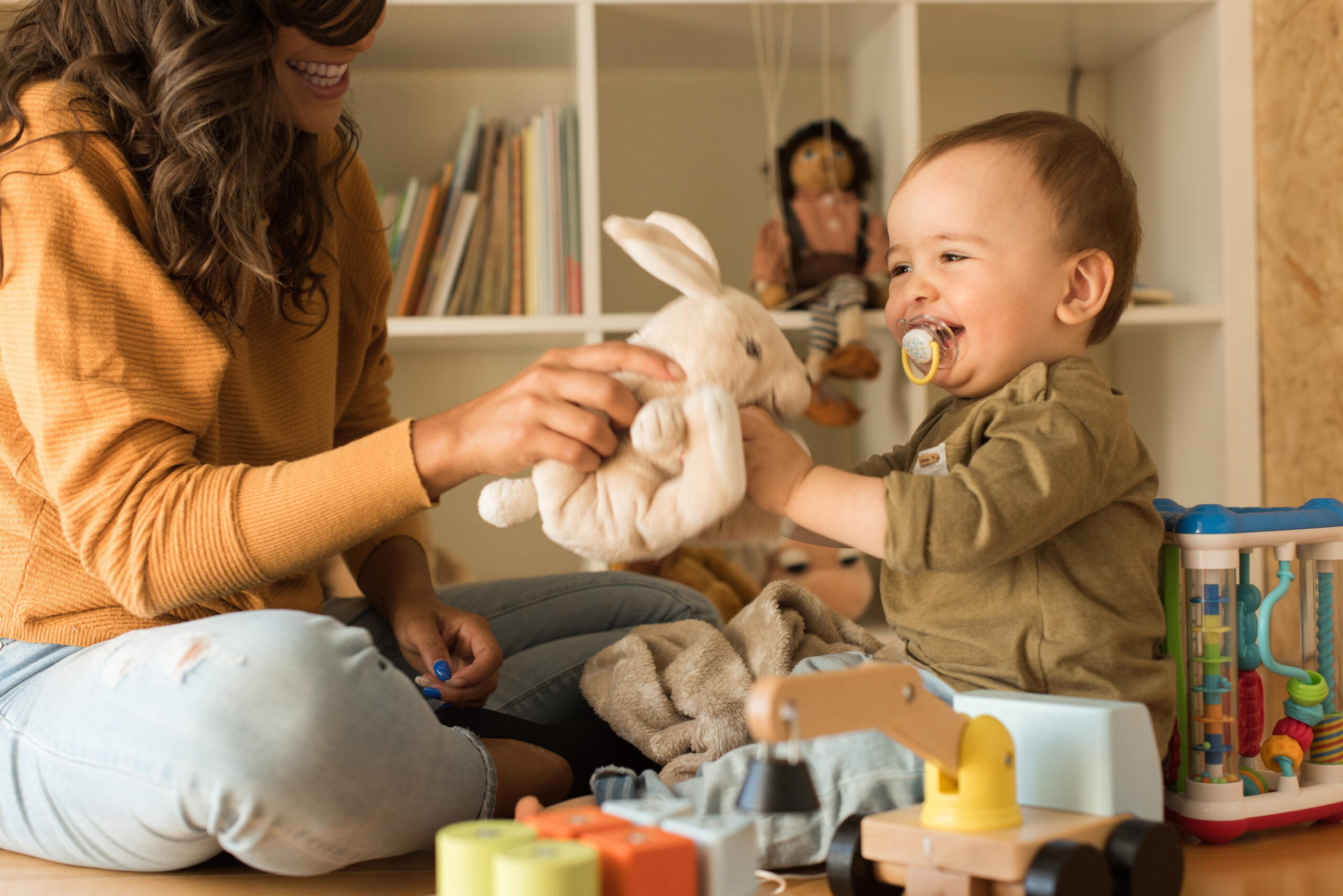After pickup, I took my 4- and 2-year-olds to the playground to meet up with friends. The kids ran around the structures together, laughing and playing and having a good ol’ time until my kids’ friend Ace bit my daughter’s forearm. Her shriek made every hair on my body stand on end. At 2 years old, Ace had a biting problem. I knew this because his mom and I talked about it. But I didn’t worry much about his toddler aggression until it impacted my toddler. Now I wanted to enact some aggression myself.
There are times when you just don’t know what to do when your toddler misbehaves. Ace’s mom felt that way with her son’s biting. But there are some behaviors—though concerning—that are still normal. Here’s what toddler aggression looks like along with when it’s normal and when to worry.
When It’s Normal
My friend Sarah and I took our boys to the children’s museum and maybe we pushed our outing a little too long. At different times in the afternoon, both kids either struggled and kicked when placed in a stroller or slapped away our hands, legs flailing when it was time to go. Ouch! We felt battered and bruised but figured the kids were worn out.
If you have a toddler, you’ve probably seen a tantrum. Clinical psychologist Denis Sukhodolsky says, “It’s not unusual for a child younger than four to have as many as nine tantrums per week. These can feature episodes of crying, kicking, stomping, hitting, and pushing that last five to 10 minutes.”
How to Respond
If my son’s friend pushed and got his toy back with no consequence, he’d learn that aggression gets him what he wants. And if I didn’t talk to my son about grabbing, the same thing would probably happen again too. When you see your child hurt himself or another child, step in right away. Be consistent with your approach to curbing the behavior, and let him know what’s acceptable and what isn’t. Kids First Pediatrics says not to “resort to anger or yelling” and to use a “we don’t hurt each other” discussion rather than punishing or spanking. You could say to a toddler, “No hitting. Hitting hurts people.”
Another thing you can do is act early. The American Academy of Child and Adolescent Psychiatry says, “It is more effective to intervene before a child starts hitting.” If he starts getting frustrated or upset, get involved in what’s happening so his feelings don’t escalate into physical aggression. When children are little, you should supervise them more closely so you can intervene before things get out of hand.
Most of the time, toddler aggression is normal and just part of life at this age. Click To TweetWhen to Worry
Ace outgrew biting by the time he started school, which coincides with the time kids start talking more and are better able to express their feelings. The Yale Medicine Child Study Center says that “Most children outgrow [aggressive] behavior by kindergarten.” But if your toddler is still using his hands, feet, or teeth on others by the time he’s 6 or 7, you should look for help.
Kids First Pediatrics says if your child is acting aggressively, he could have a hearing or communication problem. Or, it could be a sign of ADHD, anxiety, depression, or a behavior disorder. Ally Pediatric Therapy also states that young children on the autism spectrum who have “trouble understanding what’s happening around them or communicating their wants and needs” might also bite or show aggression.
Don’t be afraid to talk to your pediatrician if you’re worried. Most of the time, toddler aggression is normal and just part of life at this age. But you should seek help if you’ve noticed a pattern or if the aggression has grown in intensity as your child has gotten older. Kids First Pediatrics says, “The sooner a source to your child’s aggression is found, the sooner you can start teaching them life-long skills in managing their emotions.” And that’s going to help you both.
Is toddler aggression something you’re worried about? What have you done to address it in your family?










